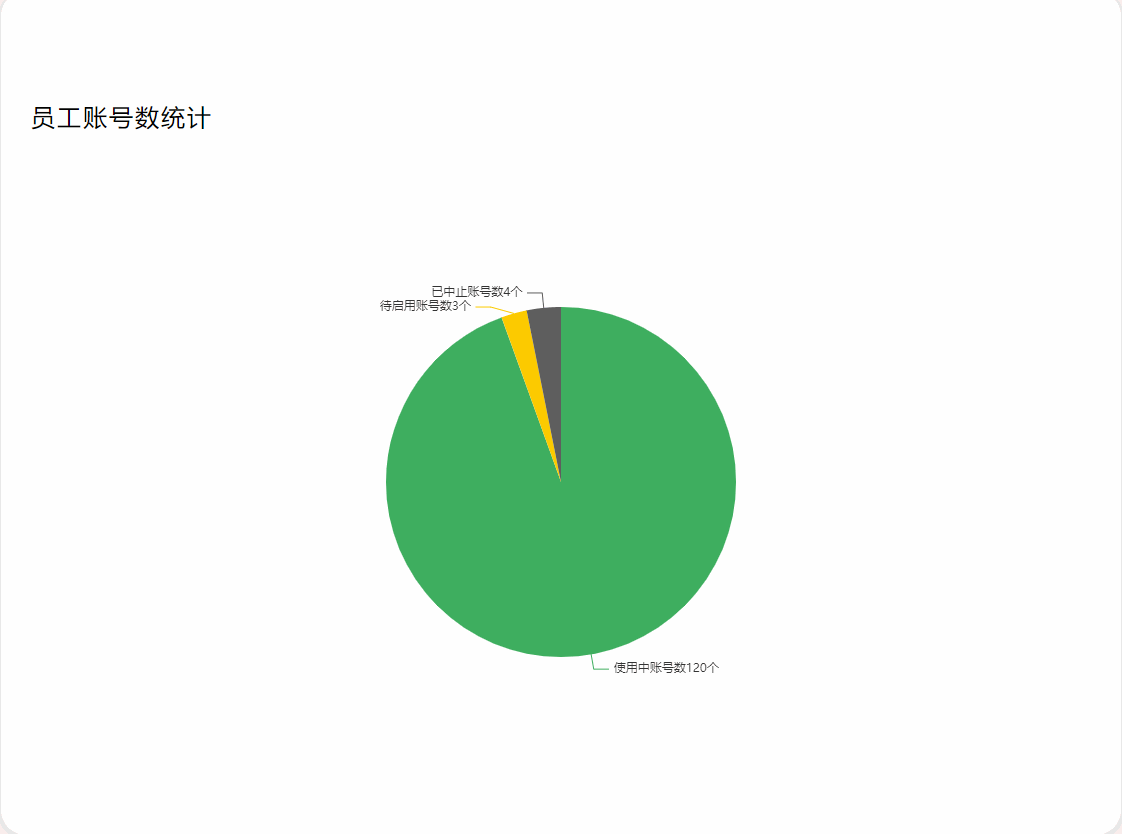原文链接:https://gitcode.net/mirrors/mindorksopensource/from-java-to-kotlin?utm_source=csdn_github_accelerator#assigning-the-null-value
Print to Console 打印到控制台
Java
System.out.print("Amit Shekhar");
System.out.println("Amit Shekhar");
Kotlin
print("Amit Shekhar")
println("Amit Shekhar")
Constants and Variables 常量和变量
Java
String name = "Amit Shekhar";
final String name = "Amit Shekhar";
Kotlin
var name = "Amit Shekhar"
val name = "Amit Shekhar"
Assigning the null value 分配空值
Java
String otherName;
otherName = null;
Kotlin
var otherName : String?
otherName = null
Verify if value is null 验证值是否为空
Java
if (text != null) {int length = text.length();
}
Kotlin
text?.let {val length = text.length
}
// or simply
val length = text?.length
Verify if value is NotNull OR NotEmpty 验证值是否为 NotNull 或 NotEmpty
Java
String sampleString = "Shekhar";
if (!sampleString.isEmpty()) {myTextView.setText(sampleString);
}
if(sampleString!=null && !sampleString.isEmpty()){myTextView.setText(sampleString);
}
Kotlin
var sampleString ="Shekhar"
if(sampleString.isNotEmpty()){ //the feature of kotlin extension functionmyTextView.text=sampleString
}
if(!sampleString.isNullOrEmpty()){myTextView.text=sampleString
}
Concatenation of strings 字符串的连接
Java
String firstName = "Amit";
String lastName = "Shekhar";
String message = "My name is: " + firstName + " " + lastName;
Kotlin
var firstName = "Amit"
var lastName = "Shekhar"
var message = "My name is: $firstName $lastName"
New line in string 字符串中的新行
Java
String text = "First Line\n" +"Second Line\n" +"Third Line";
Kotlin
val text = """|First Line|Second Line|Third Line""".trimMargin()
Substring
Java
String str = "Java to Kotlin Guide";
String substr = "";//print java
substr = str.substring(0, 4);
System.out.println("substring = " + substr);//print kotlin
substr = str.substring(8, 14);
System.out.println("substring = " + substr);
Kotlin
var str = "Java to Kotlin Guide"
var substr = ""//print java
substr = str.substring(0..3) //
println("substring $substr")//print kotlin
substr = str.substring(8..13)
println("substring $substr")
Ternary Operations 三元运算
Java
String text = x > 5 ? "x > 5" : "x <= 5";String message = null;
log(message != null ? message : "");
Kotlin
val text = if (x > 5) "x > 5" else "x <= 5"val message: String? = null
log(message ?: "")
Bitwise Operators
Java
final int andResult = a & b;
final int orResult = a | b;
final int xorResult = a ^ b;
final int rightShift = a >> 2;
final int leftShift = a << 2;
final int unsignedRightShift = a >>> 2;
Kotlin
val andResult = a and b
val orResult = a or b
val xorResult = a xor b
val rightShift = a shr 2
val leftShift = a shl 2
val unsignedRightShift = a ushr 2
Check the type and casting 检查类型和铸件
Java
if (object instanceof Car) {Car car = (Car) object;
}
Kotlin
if (object is Car) {
var car = object as Car
}// if object is null
var car = object as? Car // var car = object as Car?
Check the type and casting (implicit) 检查类型和铸造(隐式)
Java
if (object instanceof Car) {Car car = (Car) object;
}
Kotlin
if (object is Car) {var car = object // smart casting
}// if object is null
if (object is Car?) {var car = object // smart casting, car will be null
}
Multiple conditions 多个条件
Java
if (score >= 0 && score <= 300) { }
Kotlin
if (score in 0..300) { }
Multiple Conditions (Switch case) 多个条件(切换案例)
Java
int score = // some score;
String grade;
switch (score) {case 10:case 9:grade = "Excellent";break;case 8:case 7:case 6:grade = "Good";break;case 5:case 4:grade = "OK";break;case 3:case 2:case 1:grade = "Fail";break;default:grade = "Fail";
}
Kotlin
var score = // some score
var grade = when (score) {9, 10 -> "Excellent"in 6..8 -> "Good"4, 5 -> "OK"else -> "Fail"
}
For-loops
Java
for (int i = 1; i <= 10 ; i++) { }for (int i = 1; i < 10 ; i++) { }for (int i = 10; i >= 0 ; i--) { }for (int i = 1; i <= 10 ; i+=2) { }for (int i = 10; i >= 0 ; i-=2) { }for (String item : collection) { }for (Map.Entry<String, String> entry: map.entrySet()) { }
Kotlin
for (i in 1..10) { }for (i in 1 until 10) { }for (i in 10 downTo 0) { }for (i in 1..10 step 2) { }for (i in 10 downTo 0 step 2) { }for (item in collection) { }for ((key, value) in map) { }
Collections
Java
final List<Integer> listOfNumber = Arrays.asList(1, 2, 3, 4);final Map<Integer, String> keyValue = new HashMap<Integer, String>();
map.put(1, "Amit");
map.put(2, "Anand");
map.put(3, "Messi");// Java 9
final List<Integer> listOfNumber = List.of(1, 2, 3, 4);final Map<Integer, String> keyValue = Map.of(1, "Amit",2, "Anand",3, "Messi");
Kotlin
val listOfNumber = listOf(1, 2, 3, 4)
val keyValue = mapOf(1 to "Amit",2 to "Anand",3 to "Messi")
for each
Java
// Java 7 and below
for (Car car : cars) {System.out.println(car.speed);
}// Java 8+
cars.forEach(car -> System.out.println(car.speed));// Java 7 and below
for (Car car : cars) {if (car.speed > 100) {System.out.println(car.speed);}
}// Java 8+
cars.stream().filter(car -> car.speed > 100).forEach(car -> System.out.println(car.speed));
cars.parallelStream().filter(car -> car.speed > 100).forEach(car -> System.out.println(car.speed));
Kotlin
cars.forEach {println(it.speed)
}cars.filter { it.speed > 100 }.forEach { println(it.speed)}// kotlin 1.1+
cars.stream().filter { it.speed > 100 }.forEach { println(it.speed)}
cars.parallelStream().filter { it.speed > 100 }.forEach { println(it.speed)}
Splitting arrays
java
String[] splits = "param=car".split("=");
String param = splits[0];
String value = splits[1];
kotlin
val (param, value) = "param=car".split("=")
Defining methods
Java
void doSomething() {// logic here
}
Kotlin
fun doSomething() {// logic here
}
Default values for method parameters 方法参数的默认值
Java
double calculateCost(int quantity, double pricePerItem) {return pricePerItem * quantity;
}double calculateCost(int quantity) {// default price is 20.5return 20.5 * quantity;
}
Kotlin
fun calculateCost(quantity: Int, pricePerItem: Double = 20.5) = quantity * pricePerItemcalculateCost(10, 25.0) // 250
calculateCost(10) // 205
Variable number of arguments 可变数量的参数
Java
void doSomething(int... numbers) {// logic here
}
Kotlin
fun doSomething(vararg numbers: Int) {// logic here
}
Defining methods with return 用 return 定义方法
Java
int getScore() {// logic herereturn score;
}
Kotlin
fun getScore(): Int {// logic herereturn score
}// as a single-expression functionfun getScore(): Int = score// even simpler (type will be determined automatically)fun getScore() = score // return-type is Int
Returning result of an operation 返回操作结果
Java
int getScore(int value) {// logic herereturn 2 * value;
}
Kotlin
fun getScore(value: Int): Int {// logic herereturn 2 * value
}// as a single-expression function
fun getScore(value: Int): Int = 2 * value// even simpler (type will be determined automatically)fun getScore(value: Int) = 2 * value // return-type is int
Constructors
Java
public class Utils {private Utils() {// This utility class is not publicly instantiable}public static int getScore(int value) {return 2 * value;}}
Kotlin
class Utils private constructor() {companion object {fun getScore(value: Int): Int {return 2 * value}}
}// another wayobject Utils {fun getScore(value: Int): Int {return 2 * value}}
Getters and Setters getter 和 setter
Java
public class Developer {private String name;private int age;public Developer(String name, int age) {this.name = name;this.age = age;}public String getName() {return name;}public void setName(String name) {this.name = name;}public int getAge() {return age;}public void setAge(int age) {this.age = age;}@Overridepublic boolean equals(Object o) {if (this == o) return true;if (o == null || getClass() != o.getClass()) return false;Developer developer = (Developer) o;if (age != developer.age) return false;return name != null ? name.equals(developer.name) : developer.name == null;}@Overridepublic int hashCode() {int result = name != null ? name.hashCode() : 0;result = 31 * result + age;return result;}@Overridepublic String toString() {return "Developer{" +"name='" + name + '\'' +", age=" + age +'}';}
}
Kotlin
data class Developer(var name: String, var age: Int)
Cloning or copying 克隆或复制
Java
public class Developer implements Cloneable {private String name;private int age;public Developer(String name, int age) {this.name = name;this.age = age;}@Overrideprotected Object clone() throws CloneNotSupportedException {return (Developer)super.clone();}
}// cloning or copying
Developer dev = new Developer("Messi", 30);
try {Developer dev2 = (Developer) dev.clone();
} catch (CloneNotSupportedException e) {// handle exception
}
Kotlin
data class Developer(var name: String, var age: Int)// cloning or copying
val dev = Developer("Messi", 30)
val dev2 = dev.copy()
// in case you only want to copy selected properties
val dev2 = dev.copy(age = 25)
Class methods
Java
public class Utils {private Utils() {// This utility class is not publicly instantiable}public static int triple(int value) {return 3 * value;}}int result = Utils.triple(3);
Generics
Java
// Example #1
interface SomeInterface<T> {void doSomething(T data);
}class SomeClass implements SomeInterface<String> {@Overridepublic void doSomething(String data) {// some logic}
}// Example #2
interface SomeInterface<T extends Collection<?>> {void doSomething(T data);
}class SomeClass implements SomeInterface<List<String>> {@Overridepublic void doSomething(List<String> data) {// some logic}
}
interface SomeInterface<T> {fun doSomething(data: T)
}class SomeClass: SomeInterface<String> {override fun doSomething(data: String) {// some logic}
}interface SomeInterface<T: Collection<*>> {fun doSomething(data: T)
}class SomeClass: SomeInterface<List<String>> {override fun doSomething(data: List<String>) {// some logic}
}
Kotlin
fun Int.triple(): Int {return this * 3
}var result = 3.triple()
Defining uninitialized objects 定义未初始化的对象
Java
Person person;
Kotlin
internal lateinit var person: Person
enum
Java
public enum Direction {NORTH(1),SOUTH(2),WEST(3),EAST(4);int direction;Direction(int direction) {this.direction = direction;}public int getDirection() {return direction;}}
Kotlin
enum class Direction(val direction: Int) {NORTH(1),SOUTH(2),WEST(3),EAST(4);
}
Sorting List
Java
List<Profile> profiles = loadProfiles(context);
Collections.sort(profiles, new Comparator<Profile>() {@Overridepublic int compare(Profile profile1, Profile profile2) {if (profile1.getAge() > profile2.getAge()) return 1;if (profile1.getAge() < profile2.getAge()) return -1;return 0;}
});
Kotlin
val profile = loadProfiles(context)
profile.sortedWith(Comparator({ profile1, profile2 ->if (profile1.age > profile2.age) return@Comparator 1if (profile1.age < profile2.age) return@Comparator -1return@Comparator 0
}))
Anonymous Class
Java
AsyncTask<Void, Void, Profile> task = new AsyncTask<Void, Void, Profile>() {@Overrideprotected Profile doInBackground(Void... voids) {// fetch profile from API or DBreturn null;}@Overrideprotected void onPreExecute() {super.onPreExecute();// do something}
};
Kotlin
val task = object : AsyncTask<Void, Void, Profile>() {override fun doInBackground(vararg voids: Void): Profile? {// fetch profile from API or DBreturn null}override fun onPreExecute() {super.onPreExecute()// do something}
}
Initialization block 初始化块
Java
public class User {{ //Initialization blockSystem.out.println("Init block");}
}
Kotlin
class User {init { // Initialization blockprintln("Init block")}}







